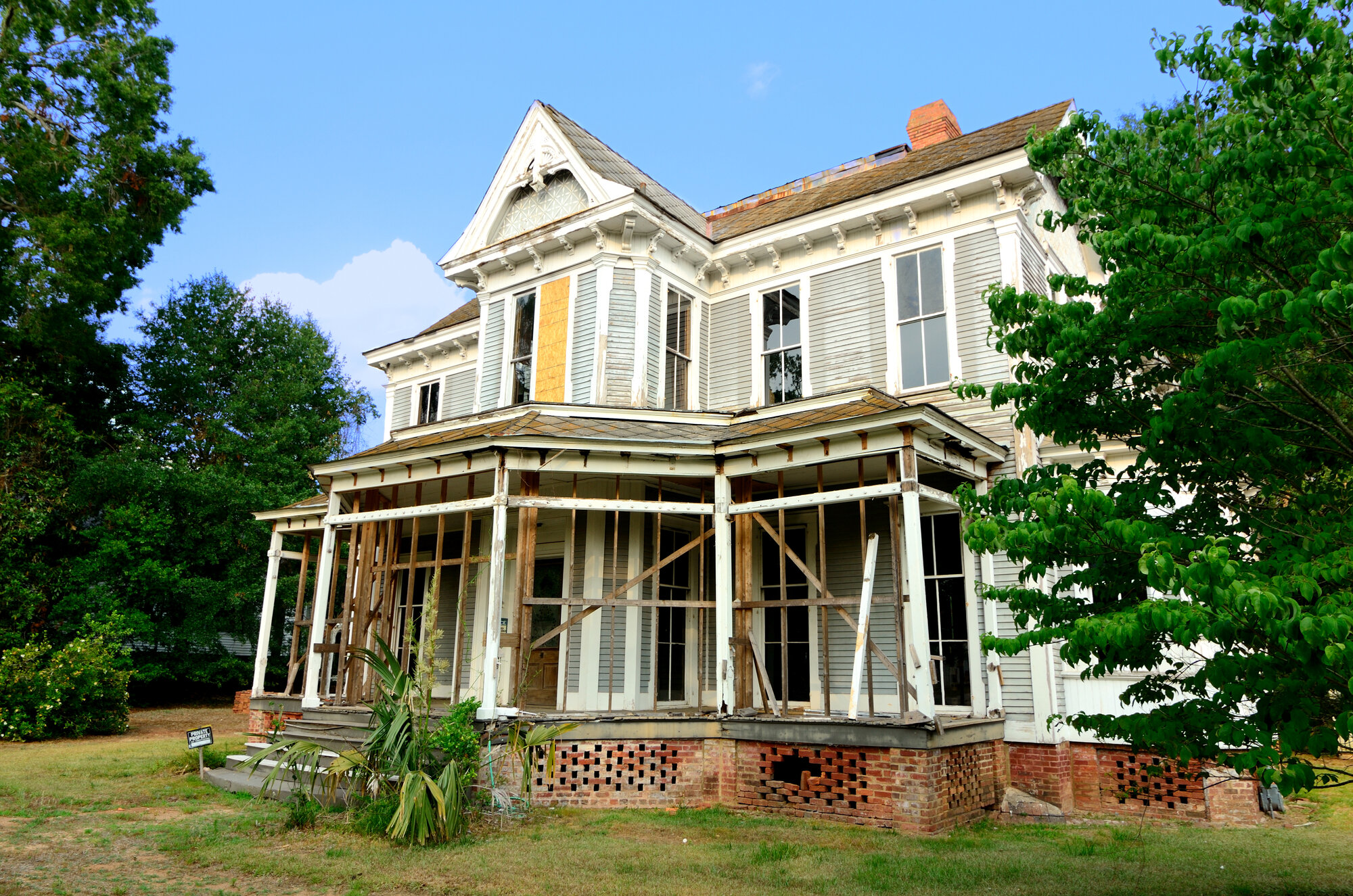Inheriting a property in Chicago brings both emotional challenges and financial responsibilities. Are you overwhelmed by costly repairs or municipal code violations? Concerned about tax implications? Struggling to navigate the probate process? At CVG Properties, we specialize in older, character-filled homes that typical investors overlook. While inherited properties have great potential, they come with unique challenges, particularly in Chicago neighborhoods with strict code enforcement. Our transparent, no-surprise approach helps you successfully manage these complexities while potentially securing financial benefit. This straightforward guide will help lighten your burden.
How To Sell An Inherited Property in Chicago
You’ve inherited a property and feel uncertain about the next steps. In Illinois, most inherited properties must go through probate – the legal process where the Court officially transfers ownership of assets to beneficiaries and/or Heirs. Having a clear, valid will significantly impacts whether this process moves efficiently or extends for months, potentially resulting in mounting code violation notices and escalating expenses.

Determine the Executor
For properties inherited with a valid will, identifying the executor should be straightforward. A critical function of a will is appointing an executor who can implement the deceased’s wishes throughout probate. Assets specified in a will cannot be sold until the Court validates the will, but once approved, the executor can act according to the deceased’s instructions. When a will is contested or non-existent, the process becomes significantly more complex with necessary Court involvement, which can be particularly challenging with Chicago properties facing time-sensitive code violations.
In situations without a clear executor, the probate court will appoint an administrator unrelated to the family. These administrators fulfill similar duties as executors – executing the deceased’s wishes as outlined in the will, settling estate debts, and distributing assets. They may also determine if property assets need to be sold to cover financial obligations, including outstanding taxes, mortgages, city code violations, and other debts that may have accumulated on the property.

Working with Lawyers and Real Estate Agents
Probate can be complex, especially in Chicago with its unique property regulations, making an experienced attorney invaluable. Once you receive approval from probate court to proceed with the sale, partnering with a real estate professional experienced in inherited properties is your next smart move. Someone with probate expertise will understand the regulations governing these sales, particularly for older homes with potential code issues. They can help identify the right buyer who appreciates the property’s character while guiding you on which improvements are worthwhile versus unnecessary expenses. Following their advice could mean the difference between a quick, profitable sale and a property that sits on the market while accumulating fines and expenses.

Resolve Any Debts
When you hear “inheritance,” do you picture a windfall, or do you recognize the reality of dealing with Chicago property potentially encumbered by liens, years of unpaid taxes, city code violations, and mortgages that might leave little profit after sale? Unfortunately, a loved one’s passing often means handling their outstanding debts, whether property tax obligations, mortgage payments, or municipal fines. Any inherited assets must first satisfy these debts before you receive proceeds. While a house appears valuable, in Chicago’s older neighborhoods it can quickly become a financial burden. An experienced estate advisor familiar with local regulations can help explore your options when managing these complex financial obligations.

Clean & Restore the Home
Once ownership is established and the property becomes yours, you’ll need to decide whether to live in it, rent it out, or sell it. Frequently, inherited properties in Chicago aren’t in ideal condition. Whether the home has accumulated code violations, been neglected for years requiring substantial cleaning and repairs, or never received updates to meet current city standards, this aspect of inheritance is often overlooked but can significantly impact your plans and potential profit. In Chicago’s neighborhoods with strict code enforcement, these issues can quickly escalate into fines and legal complications.
Contact Us today for your cash offer!
Contact CVG Properties today for a fair cash offer on your inherited Chicago house, condo, or property. As bilingual specialists in older homes with code violations, we purchase properties in any condition and can guide you through the complicated process of selling a property in probate, even handling those challenging city ordinance violations that other buyers avoid!
Get An Offer Today, Sell In A Matter Of Days
Do all heirs have to agree to sell the property?
No, Heirs don’t necessarily have to agree to sell an inherited property if ownership has been legally established through a will or probate court. However, if ownership remains undetermined, such as with an estate lacking a will and/or having a Court-appointed administrator, then all Heirs must consent to the sale. This requirement also applies to properties auctioned by the Court to satisfy estate debts. If someone purchases a house at auction but one or more Heirs contest the sale, the transaction must be paused until the dispute is resolved and a settlement reached. In Chicago, these delays can be particularly problematic if the property has outstanding code violations that continue to accumulate fines.
How to Settle a Disagreement
Several options exist for resolving disagreements among Heirs over an estate, but establishing an executor is the crucial first step. Having a designated individual responsible for executing the deceased’s wishes according to the will can prevent disputes about asset distribution. Without an executor or when the will faces challenges, hiring a mediator may be your next best option. Engaging a neutral third party to facilitate resolution is typically more cost-effective than pursuing legal action through probate court, especially when dealing with Chicago properties that may have time-sensitive code compliance issues requiring immediate attention.
Best Practices
What if conflicts arise regarding the executor themselves? Family tensions can emerge when a relative is appointed as executor or trustee, creating friction with other family members. In such cases, the appointed person might consider declining the role and selecting an independent fiduciary, such as an estate-planning attorney experienced with Chicago properties, to administer the will. Stepping aside while a neutral professional takes charge can prevent arguments and provide everyone space to process difficult emotions before permanent family damage occurs, while ensuring property issues like code violations are addressed promptly.
How is inherited property taxed when sold?
State and local governments across the United States collected over $5.3 billion from estate and inheritance taxes in 2020 alone. With laws varying significantly between states, consulting a lawyer specializing in Illinois tax regulations and estate planning is essential when handling an unexpected inheritance or drafting your own will, particularly for Chicago properties that may have additional local considerations.
State Tax Laws
Each state enforces different inheritance laws. When selling an inherited property in Illinois, you may face estate tax, inheritance tax, and capital gains tax on your inheritance. Currently, twelve states have estate taxes, five have inheritance taxes, and one state levies both estate and inheritance taxes. Understanding Illinois-specific regulations is crucial for Chicago property owners to avoid unexpected tax burdens.

Capital Gains Tax on Inherited Property
What is the capital gains tax and which states require it? This tax applies to the appreciation of assets inherited through an estate, but it’s only assessed when the asset is sold for profit, not at inheritance. The tax is calculated on the difference between the sale price and the purchase price. Most states impose this tax on inherited property sales, though exemptions may exist for properties sold below certain thresholds. For example, Washington State doesn’t levy capital gains tax on homes or properties sold for less than $250,000. Other legal strategies may help reduce or avoid capital gains tax in Illinois, such as reinvesting proceeds into another property. Before selling your inherited Chicago property, consult with a tax attorney familiar with both state and local regulations to understand your specific obligations.

Estate Taxes
An estate tax is paid directly from the estate to the state before any inheritance distribution. Concerned about a significant reduction in your inheritance? You can likely relax, as the estate tax has a substantial minimum threshold – $12.92 million for individuals in 2023. This means the government cannot impose estate tax unless the total taxable estate exceeds $12,920,000. The remainder passes estate tax-free. Despite this high threshold, more states continue to repeal their estate tax laws each year, forgoing millions in potential revenue. Illinois has its own specific estate tax provisions that may affect Chicago property owners.

Inheritance Taxes
Only six states currently have inheritance taxes, meaning you’re likely among the fortunate majority who won’t face this obligation. However, if you reside in Maryland, Nebraska, Kentucky, New Jersey, Pennsylvania, or Iowa, you as a beneficiary/Heir will need to pay taxes on inherited assets and properties. The good news is that even if you live in one of these six states, you won’t owe inheritance tax if the deceased lived in Illinois or any of the other states without this tax. This is particularly relevant for Chicago property owners with out-of-state heirs.
Documents required to sell an inherited property
To establish legal ownership and list a Chicago property for sale, you’ll need court-issued documentation confirming your authority as executor or administrator of the estate. These documents establish your legal right to manage the inherited property. When ready to close with a buyer, you’ll need the deed, title insurance, and other relevant legal records to verify legal ownership of the inherited property. For Chicago properties with code violations, you’ll also need documentation showing compliance plans or resolution strategies to avoid delays in the selling process.
Research thoroughly what additional documentation might be required for selling an inherited Chicago property. Some jurisdictions require supplementary property records, including previous surveys, inspection reports, code violation notices, or other paperwork relevant to the property’s condition or history. Having this information organized early can prevent unexpected delays and ensure a smoother transaction, especially when dealing with older homes in neighborhoods with strict code enforcement.
Is there an easier way to sell?
Yes, there is! CVG Properties is a Chicago-based real estate solutions firm with an established reputation for purchasing inherited houses for cash with minimal stress and reduced fees. As the only local cash home buyer with a truly bilingual team, we specialize in older homes with unique challenges like city code violations that typical investors avoid. We offer a transparent, no-surprise process where you’ll know exactly what you’ll receive. Contact us today for a fair cash offer on your inherited Chicago property – we purchase homes regardless of condition and can assist with navigating the complicated probate process while handling those challenging local ordinance violations for you!
Whether your Chicago property suffered significant storm damage, has accumulated city code violations, or was neglected for years requiring substantial renovations to become market-ready, once you accept our fair cash offer, our expert team and established contractor network will handle all those costly repairs and compliance issues so you don’t have to! We can even arrange moving support prior to closing, providing complete assistance through every step of selling your inherited house – the kind of comprehensive service other buyers simply don’t offer.
Contact Us today for your cash offer!
If you own a Chicago property stuck in probate that you’re ready to sell, call us at 312-625-6506 anytime to receive a fair cash offer. As local experts with real estate broker credentials since 2013 and probate specialist certification, we purchase properties in any condition regardless of code violations or the estate’s financial circumstances, providing you with a transparent, no-surprise process from start to finish, with the personalized, bilingual support that makes CVG Properties unique among Chicago home buyers.
